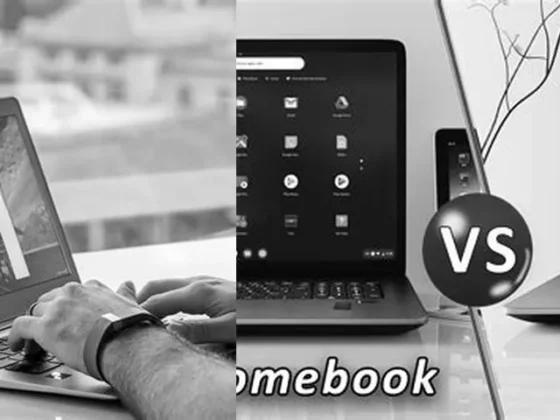Can You Run All Apps on a Chromebook? Exploring the Limitations and Expanding Possibilities – Can You Run All Apps On A Chromebook? Unlocking the Full Potential of Your Device
Are you a proud owner of a Chromebook? Excited to explore all the possibilities this sleek and lightweight device has to offer? Well, you’re not alone! Chromebooks have gained immense popularity in recent years for their simplicity, affordability, and seamless integration with Google’s suite of apps.
But here’s the burning question: Can you run all apps on a Chromebook? While Chromebooks are designed to be primarily web-centric machines, the answer is not as straightforward as you might think. In this blog post, we’ll dive deep into the world of Chromebooks and explore how you can expand their potential to run a wide range of applications.
From embracing the power of Linux to unleashing the full potential of Android apps, we’ll guide you through the process of optimizing your Chromebook experience. We’ll also shed light on the limitations you might encounter along the way, so you can make informed decisions about the apps you choose to run.
Whether you’re a student looking to enhance your productivity, a professional seeking to streamline your workflow, or simply someone who loves exploring new apps, this blog post is for you. We’ll even highlight some popular apps that you can run on your Chromebook, so you can get started right away.
So, buckle up and get ready to unlock the full potential of your Chromebook. Say goodbye to limitations and hello to a world of endless possibilities. Let’s dive in and make the most out of your Chromebook experience!
Expanding Your Chromebook’s Potential with Linux
Chromebooks are designed to be simple and efficient machines, running Chrome OS, a streamlined operating system that is perfect for those who primarily work with web applications. However, if your work or hobbies require software that isn’t available on the web, you might wonder if your Chromebook can keep up. The answer lies in the flexibility of Chrome OS, which allows you to enable Linux.
Enabling Linux on Chromebooks
By enabling Linux on your Chromebook, you open up a new world of applications. Linux apps range from office software to programming tools and even graphic design suites. This feature adds a layer of versatility to your Chromebook, making it possible to install and run software that’s outside the realm of typical web apps or Android applications.
Installing Linux Apps
Once Linux is enabled, the process of installing Linux apps is fairly straightforward. Chromebooks with Linux support use a Debian-based environment, which means that you can install software through the command line using apt commands or through a graphical package manager, if you prefer a more visual approach.
Embracing Android Apps on Chromebooks
Chromebooks not only bridge the gap to Linux but also to the vast ecosystem of Android apps. With support for the Google Play Store, a Chromebook can run a multitude of Android applications just like any smartphone or tablet running the Android OS.
Checking for Google Play Support
Not all Chromebooks initially came with Google Play support, but many modern Chromebooks do. To check if yours is one of them, look for the Google Play Store option in your settings. If it’s there, you’re ready to download and use Android apps right away.
Browsing the Google Play Store
Once enabled, the Google Play Store on your Chromebook works just like it does on other Android devices. You can browse categories, download apps, and manage updates. This integration means that your favorite mobile apps can now be enjoyed on a larger screen, often with keyboard and mouse support.
Understanding Chromebook Limitations
While Chromebooks have come a long way in terms of app compatibility, they do not run Windows. This means Windows-specific applications are off the table unless you resort to remote desktop solutions or web-based alternatives.
Chrome OS: Built for the Web
Chrome OS shines when it comes to web-based tasks. It’s optimized for reading websites, checking email, and watching online videos among other internet activities. The operating system is designed to be lightweight and fast, providing a seamless browsing experience.
Popular Apps You Can Run on Chromebooks
Thanks to the addition of Android and Linux app support, the range of software you can use on Chromebooks is better than ever. Here’s a look at some apps that you can enjoy on your machine:
Communication and Collaboration Tools
- Google Meet: Ideal for video conferencing, especially integrated with other Google services.
- Microsoft Teams: A comprehensive communication platform for chats, meetings, and collaboration.
- WhatsApp: The popular messaging app is available on Chromebooks for staying connected with friends and family.
- Facebook Messenger: For those who rely on Facebook’s ecosystem for messaging.
Business and Productivity Apps
- Jitsi Meet: An open-source video conferencing app that doesn’t require an account.
- RingCentral: A robust VoIP service for calls, messaging, and video meetings.
- Dialpad: A cloud communication platform that offers voice, video, and messaging.
- 8×8: Another service that provides voice, video, and chat communication for businesses.
Optimizing Chromebook Use for Various Apps
When you have enabled both Linux and Android app support, you might need to tweak your Chromebook’s settings for optimal performance. This can range from allocating more resources to the Linux container to adjusting the display settings for a better Android app experience.
Resource Allocation for Linux
Linux apps may require more system resources than web or Android apps. You can manage these resources by monitoring your system’s performance and adjusting the amount of CPU and memory dedicated to the Linux container.
Display Settings for Android Apps
Because Android apps are often designed for touchscreens and smaller displays, you may need to adjust scaling or display settings to make them more usable on your Chromebook’s larger screen.
Conclusion
Your Chromebook might seem like a simple machine, but under the hood, it’s capable of running a wide variety of applications. From the web-centric tasks it was designed for to the Linux and Android apps you can enable, there’s a lot you can do with a Chromebook. While you can’t run every app out there, especially Windows-specific ones, the ability to utilize Linux and Android apps makes Chromebooks versatile tools for both work and play.
It’s this fusion of simplicity and flexibility that makes Chromebooks a compelling choice for users who want a device that can adapt to their needs. Whether you’re a student, a professional, or just someone looking for a reliable and affordable computer, a Chromebook can be a smart investment. Just remember to check your specific model’s capabilities and remember that some tinkering may be required to get everything running smoothly.
Ultimately, while you can’t run all apps on a Chromebook, the list of what you can run is growing, and the possibilities are expanding. By leveraging the power of Linux and Android on your Chromebook, you’ll find that there’s a whole lot more you can do than just browsing the web.
FAQ & Related Questions about Can You Run All Apps On A Chromebook?
Q: Can I install Linux apps on a Chromebook?
A: Yes, it is possible to enable Linux and install Linux apps on your Chromebook.
Q: Can I install Android apps on a Chromebook?
A: If your Chromebook supports the Google Play Store, you can install and use Android apps on it.
Q: How do I enable the installation of Android apps on my Chromebook?
A: If your Chromebook supports Android apps, the Google Play Store should be enabled by default. You can download Android apps from the Google Play Store app.
Q: Can I install any app from the Google Play Store on my Chromebook?
A: Yes, once you have enabled the installation of Android apps, you can install any app from the Google Play Store on your Chromebook.
Q: What are some examples of apps that can be run on a Chromebook?
A: Some examples of apps that can be run on a Chromebook include Google Meet, 8×8, Dialpad, Facebook Messenger, Jitsi Meet, Microsoft Teams, and RingCentral.


